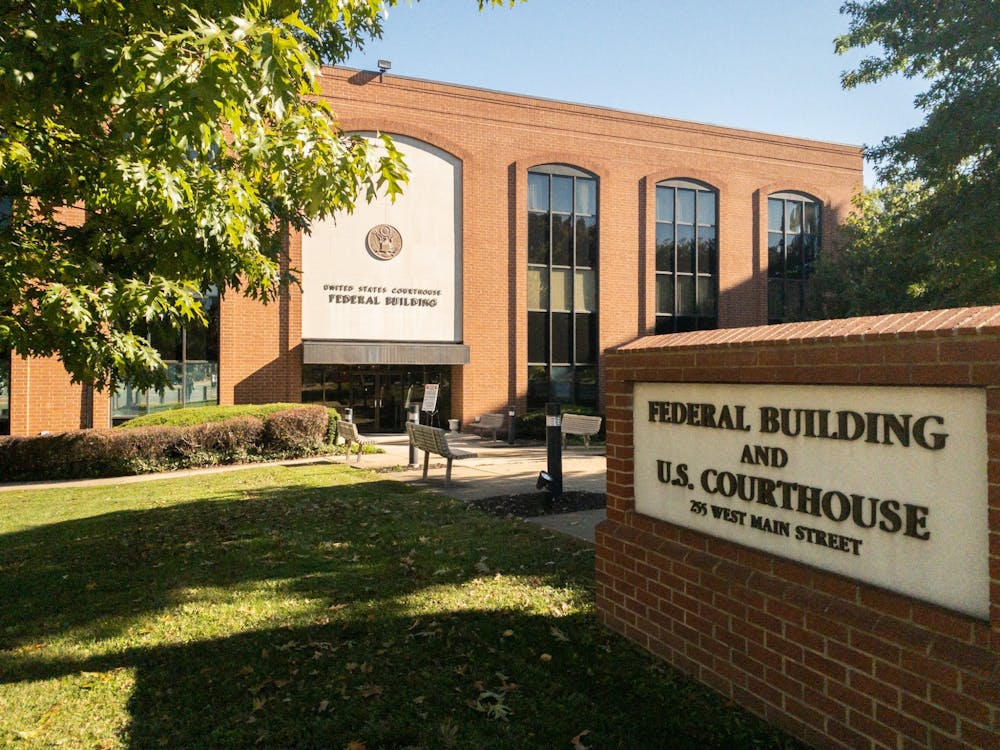Steven Donziger, an American attorney who waged a legal battle to fight Chevron’s pollution in Ecuador, was sentenced for contempt of court Oct. 1. The lawsuit against Donziger was riddled with flaws, its conditions were excessive and arbitrary — to such an extent that the UN Human Rights Council condemned it — and the process was mired in alleged corruption. But what the Donziger case most represents is that the U.S. Federal Court system is broken, corrupt and in desperate need of reform.
The legal trials and tribulations of Donziger began in 2014 — four years after he won a $9.5 billion judgement against Chevron for polluting the Amazon — when he was sued in American courts for alleged ethical impropriety. Chevron had no real grounds to sue Donziger — leaked Chevron documents have proved that the company explicitly sought to “demonize” him. Instead, Chevron took advantage of how America’s court system effectively allows a wealthy party to bury another in a complex lawsuit until they run out of money to fight it.
It’s a concept called SLAPP — or a Strategic Lawsuit Against Public Participation — and the sole goal is to harass critics into silence. Even though the U.S. court system does have in place penalties for meritless lawsuits, getting to the actual point where a lawsuit is deemed meritless takes time — often years — meaning that defending oneself against them will take millions of dollars in legal fees. And in most of these cases, one is ineligible for a public defender, so they will be paying out-of-pocket for their legal defense. These are completely permissible in federal court because our legal system doesn’t have the infrastructure in place to protect victims of SLAPP lawsuits.
For Donziger, things were much worse than a retaliatory lawsuit. The judge presiding over his case, Lewis A. Kaplan of the Southern District of New York, held investments in funds with large Chevron holdings. In other words, the judge in Donziger’s case had financial ties to the company seeking to prosecute Donziger.
While you’d imagine that such a conflict of interest would disqualify a judge from sitting in on a case, they’re actually extremely common in federal court. A recent Wall Street Journal investigation found that since 2010, over 130 federal judges have violated laws or ethical rules by hearing cases involving companies in which they or their family owned stock. Of the 685 affected court cases, about two thirds of the rulings favored the companies that they had ties to. Such conflicts of interest undermine confidence in a judge’s ability to fairly preside over a trial, yet are encouraged by a lack of monitoring and transparency of judge’s financial disclosure forms, as well as the common practice of federal judges earning supplemental incomes.
These conflicts of interest played an even greater role in Donziger’s case. First, Judge Kaplan permitted testimony at trial against Donziger by an Ecuadorian official who had accepted money from Chevron — and would eventually admit to lying — in a blatant conflict of interest. Second, when Donziger refused to hand over phone records during the trial, Kaplan ordered Donziger be tried separately for failing to comply with the court. The federal government refused to intervene so Kaplan took the abnormal step of picking a judge and a private law firm to try the new case against Donziger, rather than picking randomly. Both the private law firm and the judge had direct and indirect financial ties to Chevron, demonstrating further conflicts of interest that should not be permissible in any fair system of justice.
All of these details — the retaliatory lawsuits and the conflicts of interests — ought to be repugnant to anyone who believes that every citizen, no matter what they are alleged to have done, deserves a free and fair trial. The fact that what has happened to Donziger was not an isolated incident, but rather a high-profile demonstration of systemic failures within the federal judiciary, making it clear that our federal court system is an institution in urgent need of reform.
And there are plenty of potential reforms to adopt. Changing where judges can be nominated from, imposing term limits on the life-long terms circuit and appellate court judges serve, expanding ethical requirements and creating a body to enforce the ethical rules already on the books. This doesn’t have to be a partisan issue either. Both Republicans and Democrats will benefit from a court that is fairer, and less corrupted by dark money. In fact, the only groups who should be afraid of increased ethics in the federal judiciary will be the monied interests that have benefited from the corruption of the status quo.
Ultimately, this column merely skims the surface at what’s wrong with our federal judiciary. It ignores issues involving the appointment of blatantly unqualified judges, a profound lack of diversity among judges and an overall lack of resources that impedes Americans’ right to a speedy trial or access to a trial by jury.
But we have the chance to right these wrongs. The justice system may have failed Mr. Donziger, but we still have the opportunity to fix it, and we must, in order to continue to ensure that our system of federal courts provide liberty and justice for all.
Matt Heller is an opinion columnist for The Cavalier Daily. He can be reached at opinion@cavalierdaily.com.







